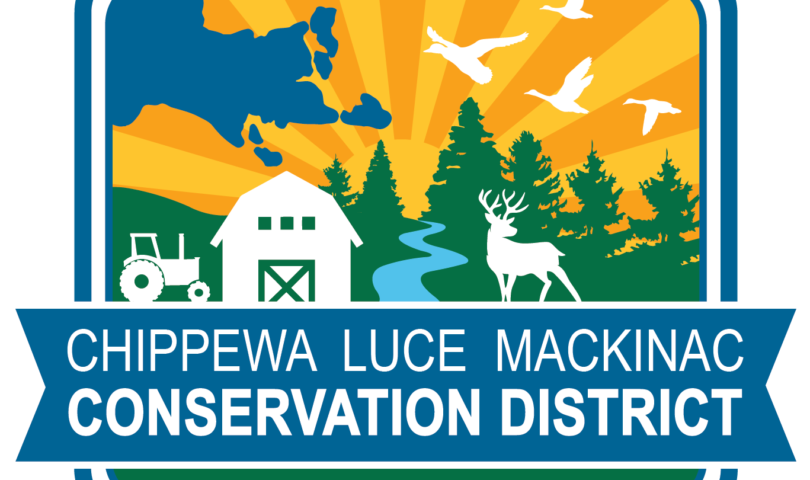By Erin Lizotte and James DeDecker, Michigan State University Extension, and Tim Wilson, USDA Wildlife Services
While wildlife have aesthetic and recreational value, large numbers of wildlife have the potential to cause damage to agricultural producers. Producers may encounter damage to their crops and might not be aware of all the options for legally mitigating damage caused by wildlife through non-lethal or lethal techniques. Prior to conducting any lethal control, producers should obtain required permits. Lethal control without the proper permits is illegal and subject to state and federal penalties. Producers may elect to enlist the services of private nuisance wildlife control companies. These companies are licensed by the Michigan Department of Natural Resources (DNR) to provide wildlife control services.
Permits to control birds
All birds are protected from lethal control except starlings, house sparrows and feral pigeons. A Project Control Permit issued by the DNR is required when restricted use pesticides are used to control nuisance birds outside of buildings. Most migratory birds are protected under the Migratory Bird Treaty Act (MBTA), including Canada geese, sandhill cranes, gulls, hawks and waterfowl. Under the MBTA, the U.S. Fish & Wildlife Service (USFWS) has the authority to issue depredation permits to control damage caused by migratory birds. A depredation permit is required before any person may kill, possess or transport migratory birds for depredation control purposes.
No permit is required merely to scare or herd depredating migratory birds other than endangered or threatened species or bald or golden eagles. In addition, no federal permit is needed to control red-winged blackbirds, cowbirds, grackles and crows when found committing or about to commit depredations upon ornamental or shade trees, agricultural crops, livestock or wildlife, or when concentrated in such numbers and manner as to constitute a health hazard or other nuisance.
Depredation permits are available to purchase and are renewed on an annual basis. These permits allow producers to kill a specific number of birds causing damage and are intended to reinforce the ongoing non-lethal harassment. Producers must have attempted non-lethal harassment before a permit will be issued. Information on non-lethal harassment techniques can be obtained from USDA Wildlife Services. Any birds killed are to be disposed of in accordance of the permit and are not to be used for human consumption.
Game birds such as turkeys, grouse, pheasant and quail are protected by state regulations. Permits for their removal must be obtained through your local DNR office. While Canada geese are considered a migratory bird and protected under the MBTA, permits for their removal when they are causing crop damage would also be obtained through your local DNR office. Permits to remove Canada goose nests and to round-up and relocate geese are issued by USDA Wildlife Services.
For more information on how to properly identify birds, visit WhatBird.com or Audubon.org.
Permits to control mammals
Game species and furbearers, including deer, bear, beaver, fox and rabbit, are protected by state law and require a DNR permit for their removal. A site visit by the DNR may be required prior to issuance of any permits in order to assess the extent of damage caused by wildlife. Two types of permits can be issued for control of white-tailed deer, a Deer Management Assistance Permit (DMAP) or Deer Damage Shooting Permit. These permits differ according to when they can be used, within or outside of a regular hunting season, respectively. Both permit types are valid for antlerless deer only taken on the property listed on said permit.
Coyotes, raccoons, skunks and woodchuck are not protected and can be taken year-round when they are doing or about to do damage on private property. Opossum, porcupine, weasel, red squirrel, ground squirrel and feral swine can also be taken year-round with a valid Michigan hunting license. Contact your local DNR office for more specific guidance.
Agency contact information
• U.S. Fish and Wildlife Services Depredation Permits: Information and applications for U.S. Fish and Wildlife Service depredation permits can be obtained by contacting USDA Wildlife Services in Okemos (517-336-1928) or Gaylord (989-705-8467). Applications are to be returned to USDA Wildlife Services for review before any permit is issued from the USFWS for wildlife control.
• Michigan Department of Natural Resources Permits: Information and permits to control damage by mammals can be obtained through your local DNR field office.
Summary of permits required for lethal control by species
| Permit requirements for lethal control of wildlife in Michigan | ||
| Species | Permit required | Permit issuing agency |
| Birds | ||
| Starlings, crows, grackles, blackbirds, pigeons, house sparrows | No* | None |
| Canada geese, turkeys, mute swans, pheasants, quail | Yes | MI Department of Natural Resources |
| Migratory birds (great blue herons, sandhill cranes, hawks, gulls, waterfowl, etc.) except threatened and endangered species and eagles | Yes | US Fish and Wildlife Services |
| Mammals | ||
| Coyotes, raccoons, woodchucks, skunks | Can be taken year-round on private land when they are actively damaging private property or damage is imminent | None |
| Deer, fox, bear | Yes | MI Department of Natural Resources |
| Beaver | Yes | MI Department of Natural Resources |
| Opossum, porcupine, weasel, red squirrel, ground squirrel, feral swine | Can be taken year-round with a valid Michigan hunting license | None |
- Laker Men’s Basketball Handle Kuyper 88-55 - December 23, 2024
- MYWAY Sault Bridge Brawl & NEMWA Regional Results - February 22, 2024
- Crawford County Prosecutor clears State Trooper in the fatal shooting of man earlier this month - February 23, 2023



